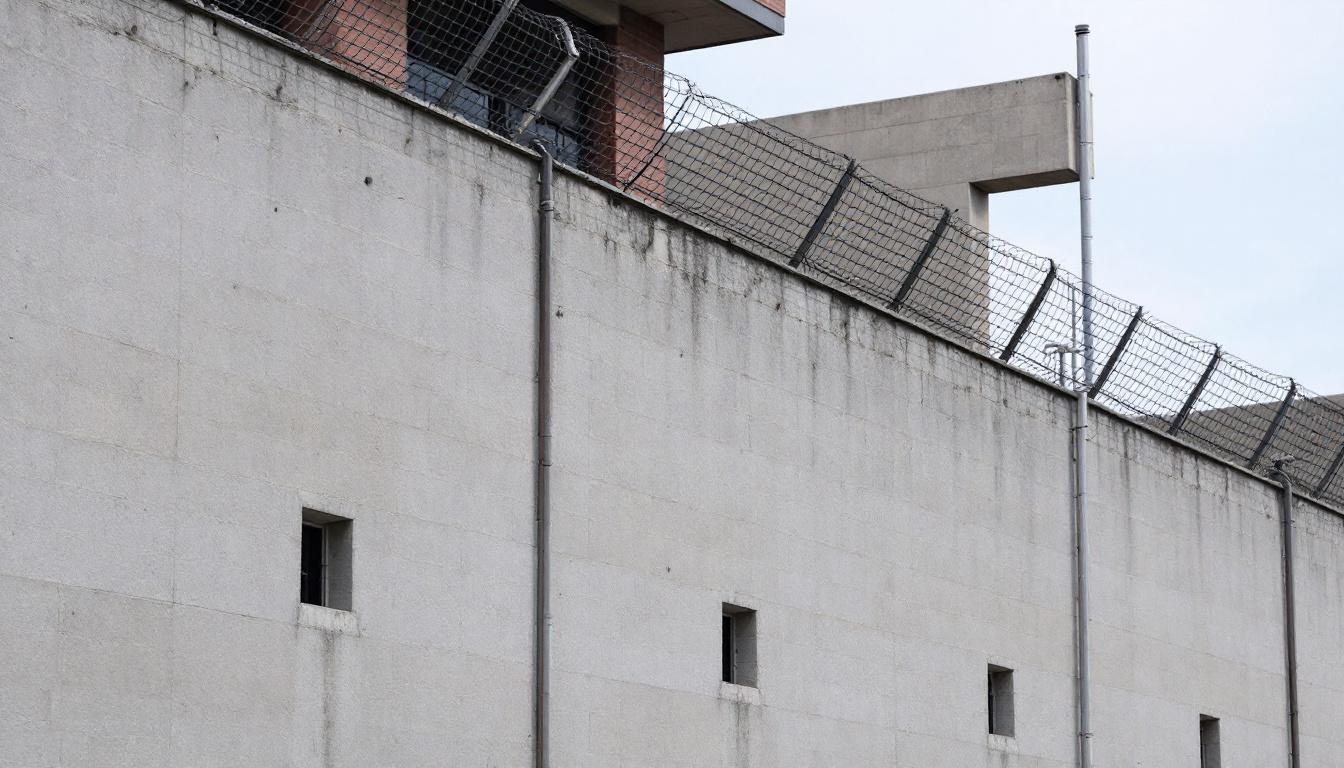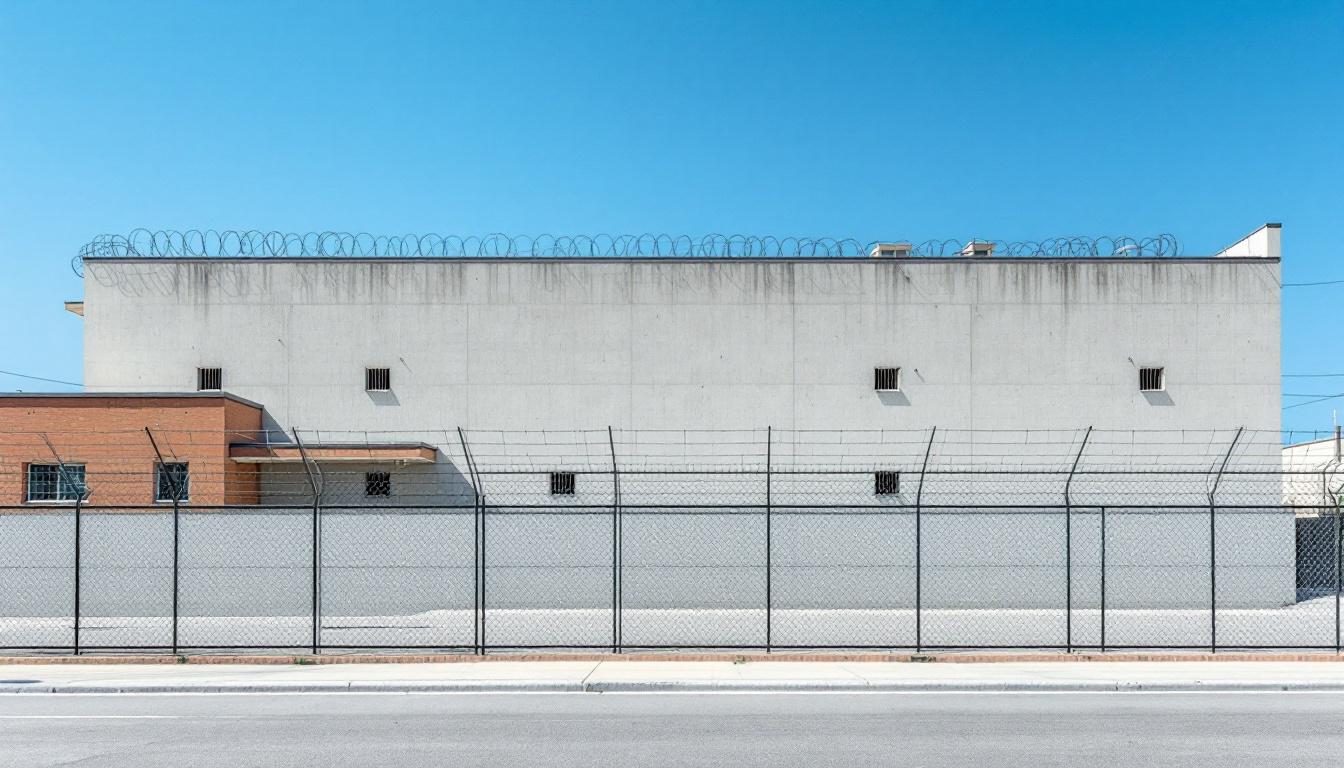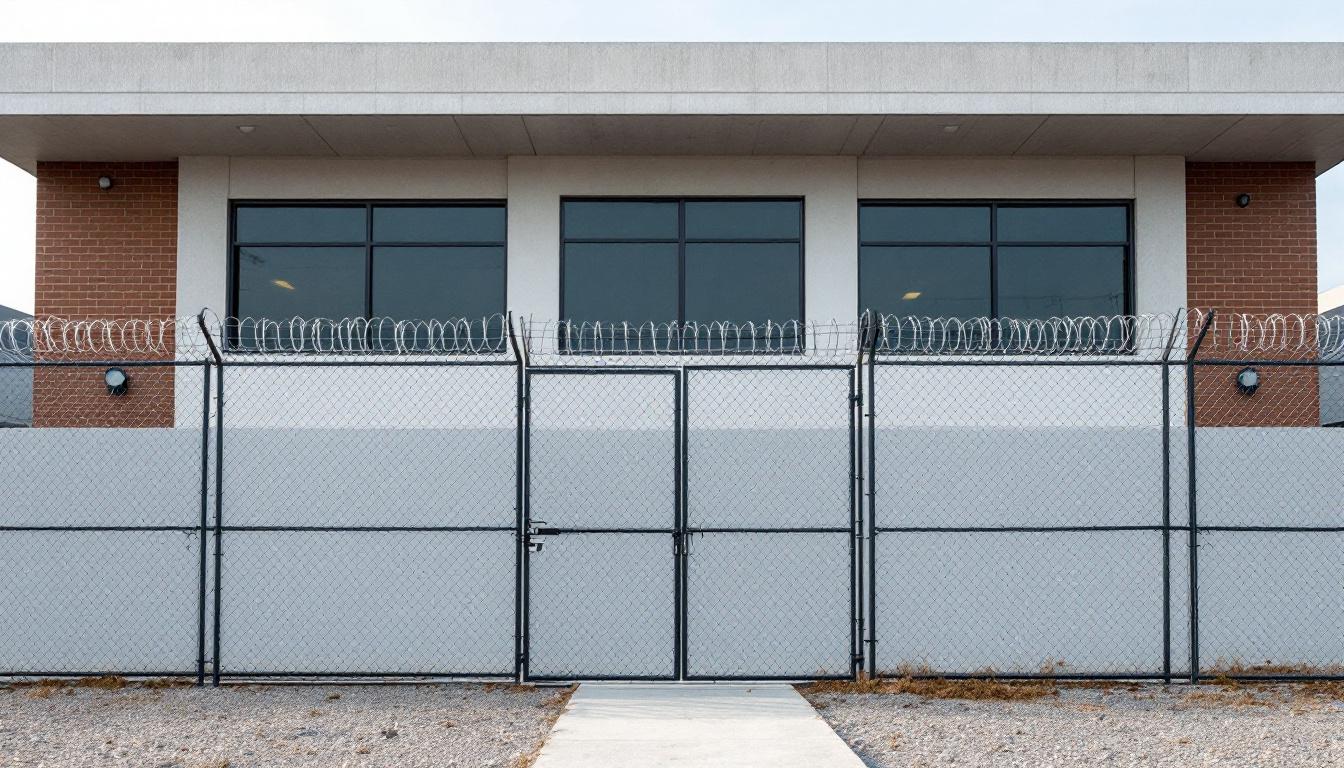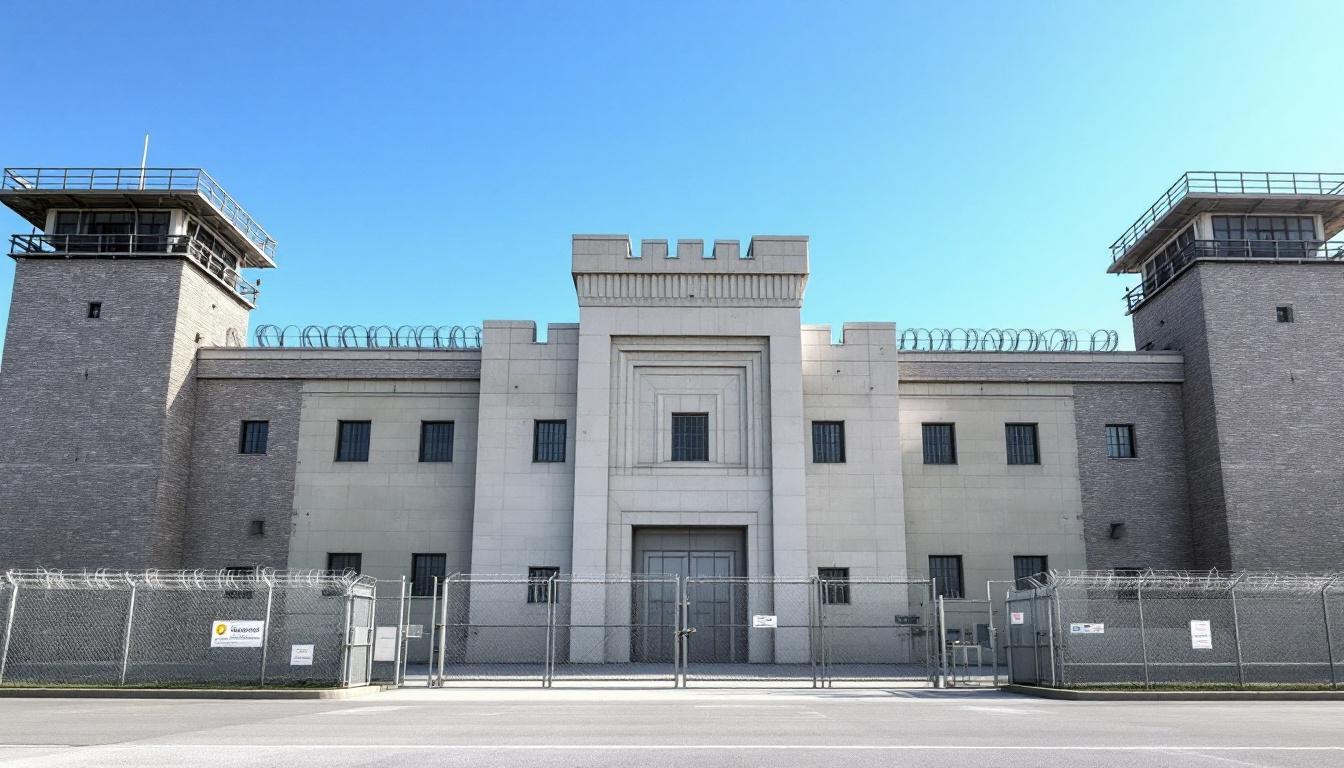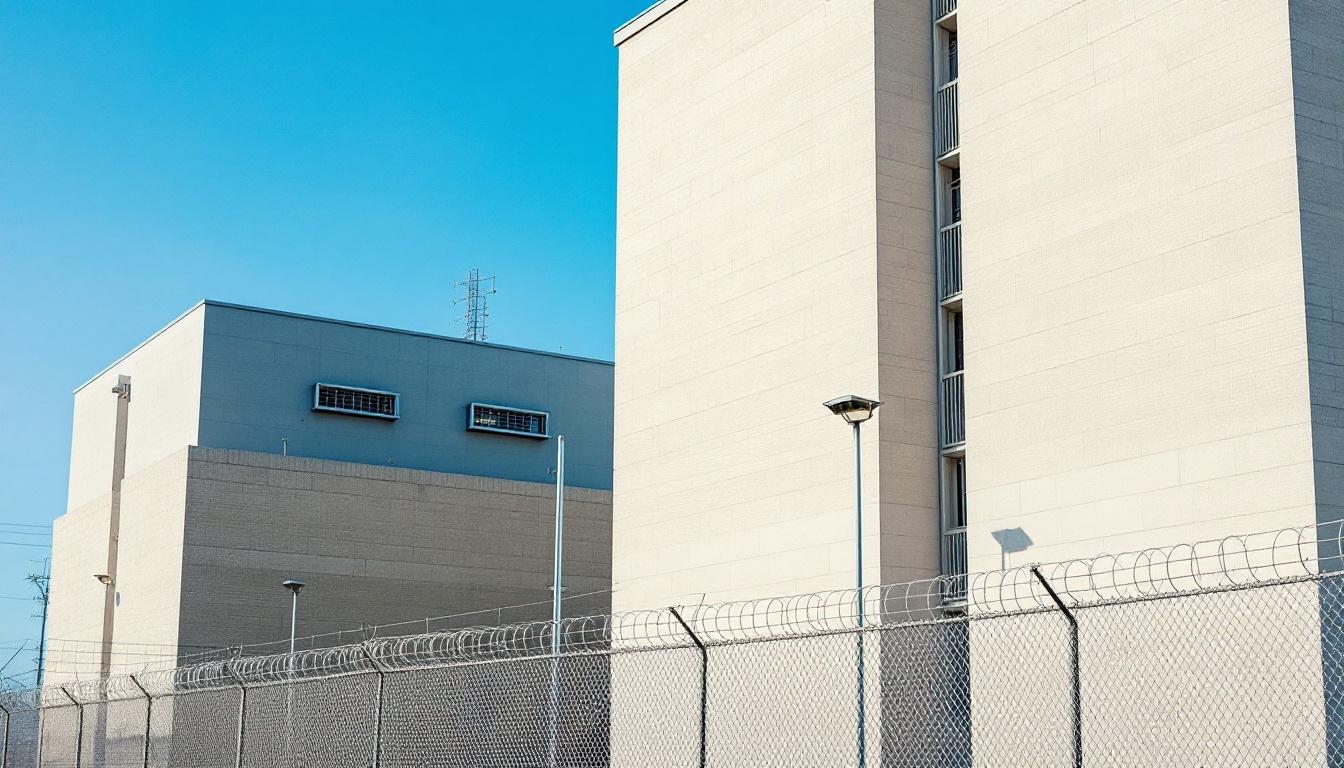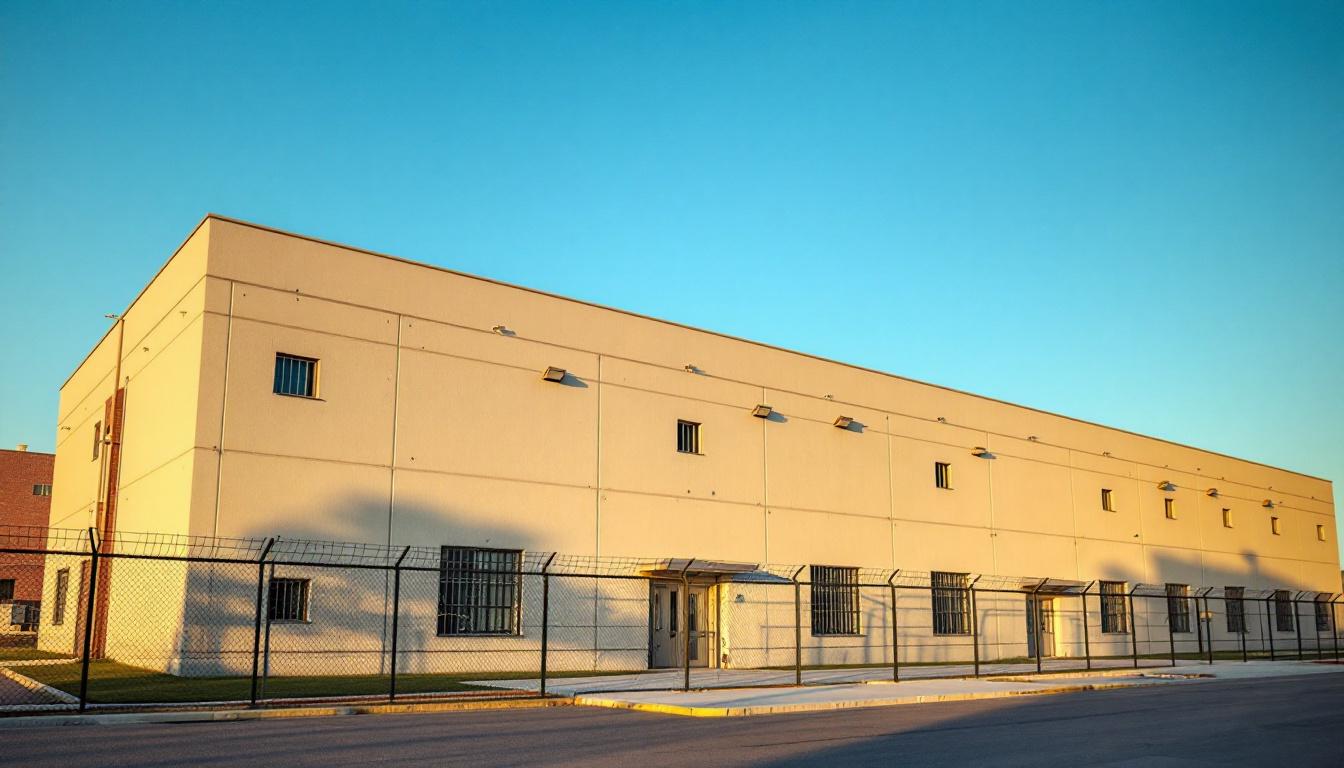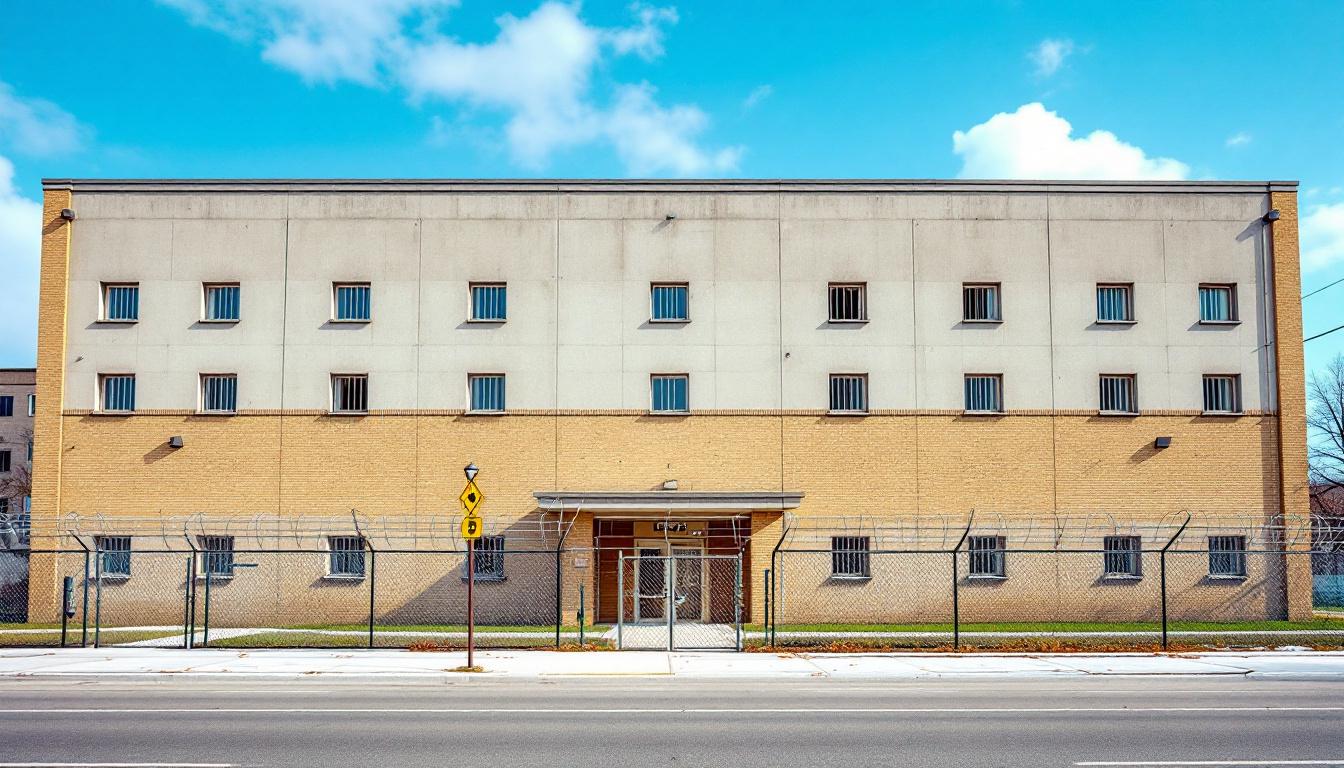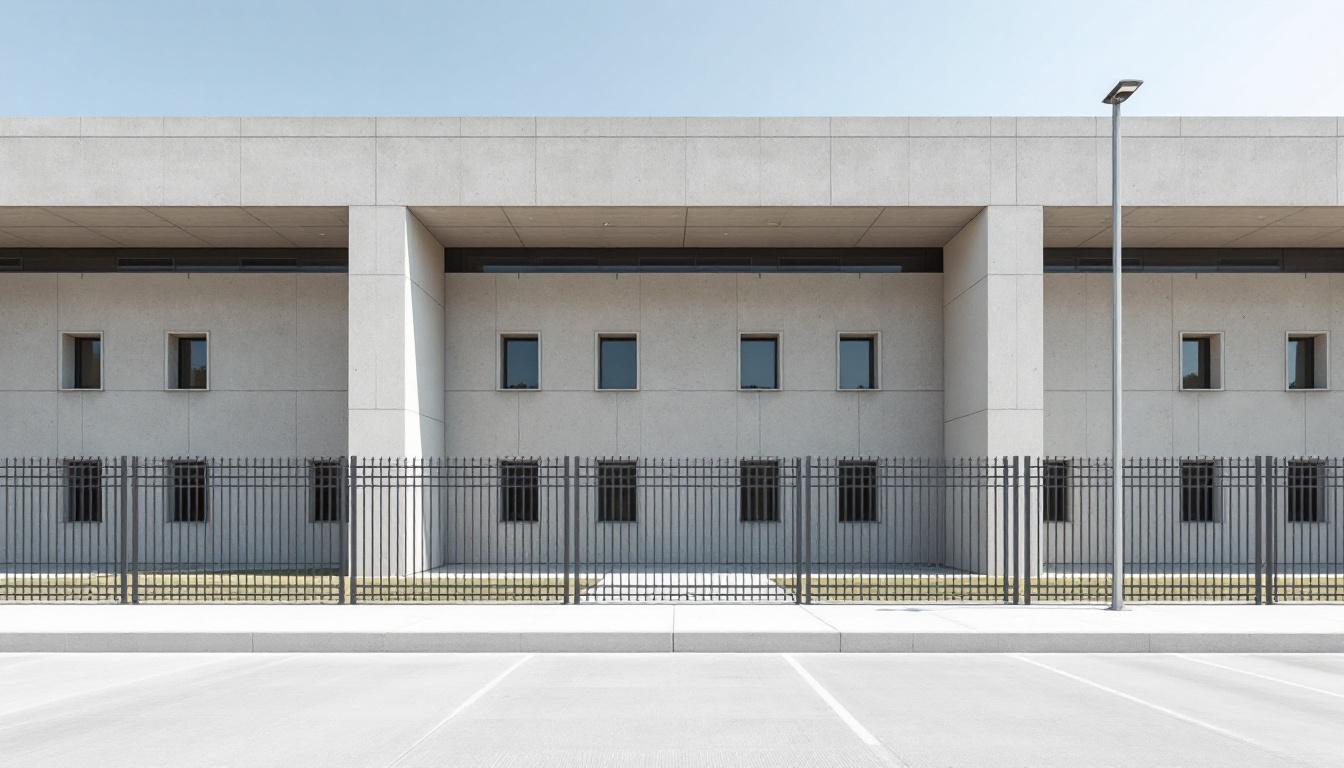
Quick Navigation
How to contact an inmate at Adult Diagnostic and Treatment Center
This comprehensive guide will walk you through how to connect with an inmate at Adult Diagnostic and Treatment Center. Follow the steps below to find an inmate and send letters and photos:
- Search for the inmate using our search tool below
- Create your account or log in to Penmate
- Write your message (up to 6,000 characters)
- Send instantly - inmates receive printed copies daily
Find an Inmate
Search for an inmate to start communicating today
Tip: You can search by first name, last name, or inmate ID number
To contact a person at Adult Diagnostic and Treatment Center start by searching for the person on the official facility website. Perform a search by following these steps:
- Step 1: Enter their first name and last name into the search form and click "Search"
- Step 2: Locate their inmate record
- Step 3: Write down their Inmate ID and any housing information provided
Important! Be sure to enter the person's full name. Nicknames should not be used.
How to Send Messages to Inmates

You can use your phone or computer to send emails, letters, and photos to an inmate. Messages are sent electronically to inmate tablets or kiosks at the facility. If you would like to send a message, start by searching for an inmate at Adult Diagnostic and Treatment Center.
Sending Photos and Postcards

A great way to send love and support to a loved one at Adult Diagnostic and Treatment Center is to send photos and postcards. It only takes a few minutes to send photos from your phone and it makes a huge difference. You can also mail postcards with words of support and inspiration, or design your own postcard for special moments like birthdays and holidays.
Important! Be sure not to send any explicit photos or they may not be approved by the facility. You can also use a photo printing app like Penmate to make sure your photos are printed at the correct size (4x6 or 3x5) and are mailed according to the rules and regulations of Adult Diagnostic and Treatment Center.
Frequently asked questions about Adult Diagnostic and Treatment Center
-
How long does it take to deliver a message?
If you're sending an email message your letter is usually delivered within 24-48 hours. For messages sent via mail you should expect delivery within 3-7 days. All messages will need be approved by Adult Diagnostic and Treatment Center.
-
How much does it cost to send a message to Adult Diagnostic and Treatment Center?
You can send a message free using your phone or mail a message via USPS for the price of a $0.60 stamp and envelope. You can also purchase credits or e-stamps from services starting at $1.99.
-
What services can I use to contact an inmate at Adult Diagnostic and Treatment Center?
Penmate
You can use Penmate to send letters and photos to an inmate from your phone. It's an easy way to stay in touch during your loved one's incarceration. Use the inmate locator to find an inmate's location and contact information, then you can send messages within a few minutes.
Securus messaging
Securus may be another option for communicating with an inmate at Adult Diagnostic and Treatment Center. You can create a friends and family account and purchase credits to send messages. All messages will be reviewed and must be approved by the facility.
JPay
Some county jails and state prisons may support sending messages with JPay. You must register an account with the system, find your loved one, and purchase stamps to send messages. For some locations you can also attach photos.
Smart Jail Mail
You may also check if Smart Jail Mail is available at Adult Diagnostic and Treatment Center. Smart Jail Mail is operated by Smart Communications and has contracted with some state and county jails. After purchasing credits, your messages and photos are sent to the facility, printed out, and then handed out to your loved one.
-
What is the mailing address of Adult Diagnostic and Treatment Center?
Mailing address:
Adult Diagnostic and Treatment Center
8 Production Way
Woodbridge Township, NJ 07001
Phone: (732) 574-2250 -
What are the visiting hours at Adult Diagnostic and Treatment Center?
Visiting hours at Adult Diagnostic and Treatment Center vary by housing unit and security level. Generally, visits are scheduled on weekends and holidays, with some facilities offering weekday visits. Contact the facility directly at (732) 574-2250 or check their website for the current visiting schedule. Visits typically last 30-60 minutes and must be scheduled in advance.
-
What items are prohibited when sending mail to Adult Diagnostic and Treatment Center?
Prohibited items typically include: cash, personal checks, stamps, stickers, glitter, glue, tape, staples, paperclips, polaroid photos, musical or blank greeting cards, hardcover books, magazines with staples, and any items containing metal or electronics. Only send letters on plain white paper with blue or black ink. Photos must be printed on regular photo paper (no Polaroids). Always check with Adult Diagnostic and Treatment Center for their specific mail policies.
-
How do I send money to an inmate at Adult Diagnostic and Treatment Center?
You can send money to an inmate at Adult Diagnostic and Treatment Center through several methods: 1) Online using JPay, Access Corrections, or the facility's approved vendor, 2) Money orders mailed directly to the facility with the inmate's name and ID number, 3) Kiosks located in the facility lobby, or 4) Over the phone using a credit or debit card. Fees vary by method, typically ranging from $2.95 to $11.95 per transaction.
-
Can I schedule a video visit with an inmate at Adult Diagnostic and Treatment Center?
Many facilities now offer video visitation as an alternative to in-person visits. At Adult Diagnostic and Treatment Center, video visits may be available through services like Penmate, Securus Video Connect, GTL, or ICSolutions. Video visits typically cost $10-20 for 20-30 minutes and must be scheduled in advance. You'll need a computer or smartphone with a camera and reliable internet connection. Contact the facility for their specific video visitation policies and approved vendors.
-
What identification do I need to visit an inmate at Adult Diagnostic and Treatment Center?
All visitors must present valid government-issued photo identification such as a driver's license, state ID, passport, or military ID. Minors must be accompanied by a parent or legal guardian who can provide the minor's birth certificate. Some facilities require visitors to be on the inmate's approved visitation list, which may require a background check. Contact Adult Diagnostic and Treatment Center for specific ID requirements and visitor approval procedures.
-
How can I find out an inmate's release date?
To find an inmate's release date at Adult Diagnostic and Treatment Center, you can: 1) Use the online inmate search tool if available, 2) Call the facility's records department, 3) Contact the inmate's case manager or counselor, or 4) Have the inmate provide this information during a call or visit. For privacy reasons, some facilities only release this information to immediate family members.
Facility Overview
Contact Information
Adult Diagnostic and Treatment Center8 Production Way
Woodbridge Township, NJ 07001
Phone: (732) 574-2250
Official Website

About Adult Diagnostic and Treatment Center
Located in the Avenel section of Woodbridge Township, New Jersey, the Adult Diagnostic and Treatment Center (ADTC) operates as a specialized correctional facility under the New Jersey Department of Corrections. Found near East Jersey State Prison, this facility opened in 1976 and serves a comprehensive role in the state’s correctional system with a capacity of many individuals. The center specifically houses and treats male sex offenders, including those sentenced under the New Jersey Sex Offender Act and others who have committed sex offenses but may participate voluntarily in treatment programs.
The facility’s treatment approach centers around a structured level and phase system that tracks inmates’ therapeutic progress, institutional conduct, and compliance. This system ranges from Level 1 through Level 4, with Level 4 representing the most advanced stage of treatment. Level many individuals typically engage in psychoeducational work using specially-prepared workbooks, often with assistance, as they begin their therapeutic journey. The center supports both court-mandated participants and those who choose to engage in treatment voluntarily, creating a comprehensive approach to addressing the complex needs of this specialized population.
ADTC’s programming extends beyond basic incarceration to include specialized treatment units and aftercare services designed to support long-term rehabilitation goals. The facility’s structured environment emphasizes therapeutic progress while maintaining appropriate security measures. Through its combination of treatment levels, educational components, and specialized programming, the center works to address the underlying issues that contribute to offending behavior while preparing participants for eventual community reintegration through its aftercare support systems.
Programs & Services
The Adult Diagnostic and Treatment Center operates through a structured therapeutic framework that divides residents into levels and phases based on their treatment progress and institutional conduct. Level 1 participants typically engage in psychoeducational work using specially-prepared workbooks, while those who advance through the program may access increasingly comprehensive treatment modalities. The facility’s Special Treatment Unit provides additional specialized care for residents requiring intensive intervention, and the program extends beyond incarceration through aftercare services designed to support successful community reintegration.
Treatment programming at ADTC centers on addressing the underlying factors that contribute to offending behavior through evidence-based therapeutic approaches. The facility may offer group therapy sessions, individual counseling, and cognitive-behavioral interventions tailored to the specific needs of its population. Educational services typically include basic literacy programs, GED preparation, and life skills training that help residents develop practical capabilities for post-release success. Vocational training opportunities may be available to provide marketable job skills, though specific programs often depend on facility resources and partnerships with local organizations.
The comprehensive approach at ADTC likely includes medical and mental health services to address co-occurring disorders and physical health needs. Recreational and wellness activities may be incorporated to promote overall well-being and healthy coping strategies. The facility’s aftercare component suggests ongoing support services that may include transitional housing assistance, continued counseling, and community supervision designed to reduce recidivism and support long-term rehabilitation goals.
Daily Life & Visitation
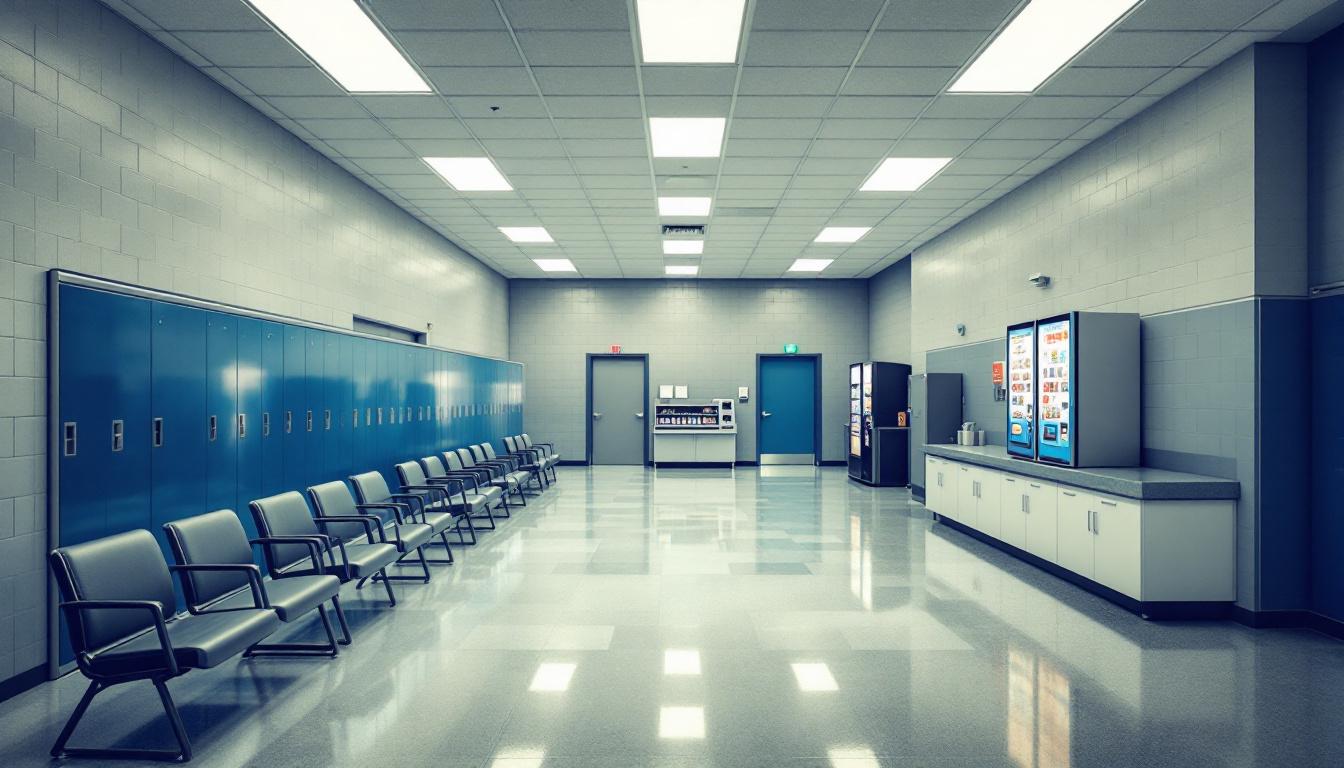
Residents at the Adult Diagnostic and Treatment Center follow structured routines centered around their therapeutic progress levels and phases. Those in Level 1 typically begin their days with psychoeducational work using specially-prepared workbooks, often with assistance from staff or more advanced residents. The facility’s specialized treatment approach means that daily schedules may vary significantly based on an individual’s level designation, which ranges from Level 1 through Level 4, with advancement determined by therapeutic progress, institutional conduct, and compliance with program requirements.
The center’s comprehensive focus on treatment creates a different atmosphere compared to traditional correctional facilities. Residents participate in various therapeutic activities throughout the day, which may include group sessions, individual counseling, and educational programs. The facility’s structure around levels and phases means that those who demonstrate progress often gain additional privileges and responsibilities within their daily routine. Living accommodations typically reflect the resident’s current level, with those at higher levels potentially having access to different housing arrangements or program opportunities.
Communication with family members generally follows standard New Jersey Department of Corrections policies, though specific visiting schedules and phone privileges may be influenced by a resident’s current level and phase status. The facility’s location in Avenel provides reasonable access for families in the greater New Jersey area. As residents progress through the treatment program, they may find that their daily structure evolves to include more independence and preparation for eventual community reintegration, with the facility’s aftercare component playing a role in this transition process.
Ready to Connect?
Start communicating with your loved one today
Search for an Inmate
